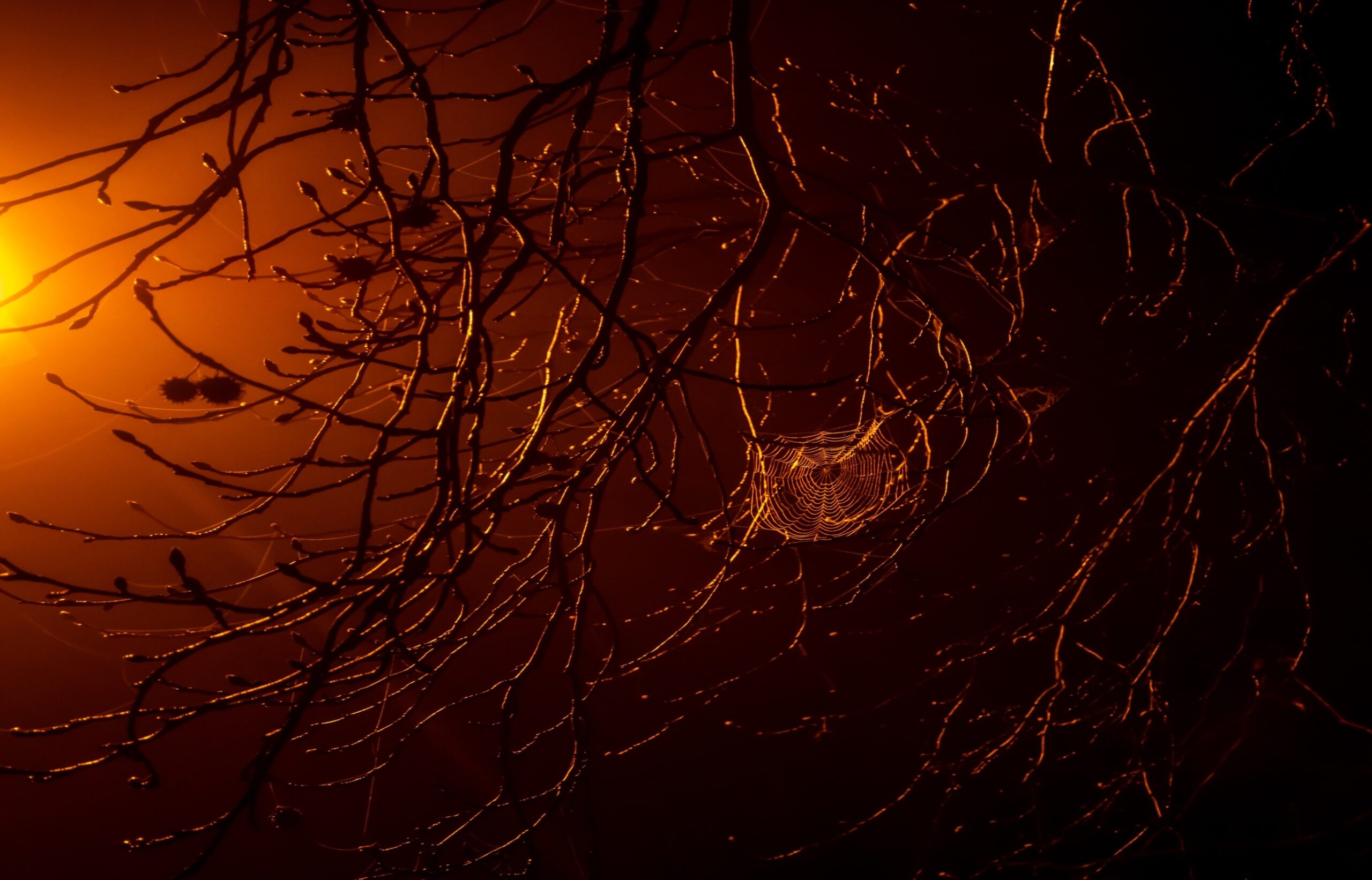It was clear from its inscription that the knife was indestructible. “Nor will I break or bend, except to the end of time,” I read aloud, holding it up to the light in our gloomy garage. Ramon found it clearing out some of his father’s boxes after the funeral. He decided only to keep three boxes, letting his brother and sister deal with the rest. “He used to find all kinds of weird shit at the flea market,” he told me.
Somehow, the handle fit neatly into both our hands, though mine was much smaller than his. It had curved edges that came together like a heart at the hilt, and the blade was pointed sharp, showing no signs of rust or age. We took it into the backyard and tested it on a rope, on some plywood leftover from renovating the fence, on an ugly glass vase I never really liked, also a gift from his dad. The blade cut through them all.
It appeared like something we would cosplay with, though we hadn’t been to any cons in a while. Weekends had been spent visiting Ramon Sr. in the nursing home before he passed. I told him to put on his warrior costume with the leather gauntlets when he played with the knife, but Ramon was too mesmerized to bother. Instead, he flipped the knife in his hand impressively, like he remembered the knife from another life, and it remembered him. Then, he swung the knife high into the air and brought it down in one clean slice, rending the air in front of us open like he had unzipped the world. The slit hung open in two ragged flaps. Ramon dropped the knife, and we both stood in front of the slit, waiting for something to happen. Neither of us wanted to look through the whistling dark of the other side, but we couldn’t leave it unattended either.
I had to call my boss and took the next day off from work to stabilize the situation. We set out lawn chairs to sit in front of the cut in the fabric of our reality, in Ramon’s words, “to make sure nothing comes through.”
There was no wind around the tear, though every now and then, it would ripple. Creatures crawled inside of it: spiders, a squirrel, a few birds. I had to keep our dog inside because he seemed determined to jump through the other side as though another me was beckoning him over. After a few days, it was harder to go to work, to pretend that there was not an open wound in our world that we couldn’t shut. Ramon and I took turns sitting in front of the rip, making sandwiches and showering or going to the bathroom in shifts so that it was never unattended. The only time we left it alone was for a few hours of sleep. My dreams were filled with dark caves and shadows, with voices of ancestors and gilded mirrors.
We were able to hide the rip for a week or so until our neighbor Lisa came by to drop off some enchiladas smothered in green salsa and cheese. She was always doing kind things like that. I guess she thought that Ramon was still grieving his father since we were barely leaving the house. Maybe she assumed that we were having a hard time.
“Thank you, Lisa, we really appreciate that,” I told her when she swept past me into the kitchen, clearly looking for Ramon. I tamped down the burn in my stomach when she did that. She set the container of enchiladas down on the kitchen counter. Panda, our schnauzer, came to greet her and then led her out of the kitchen into the backyard. Ramon was posted in his lawn chair under the shade of our oak tree. He was nursing a watered-down lemonade in the heat. I noticed that our backyard needed watering.
“What on Earth is that?” she asked, pointing to the waving rip.
Ramon jumped up to give her an awkward side hug while her eyes were still transfixed on the rip.
“It was an accident. Don’t worry, we’re taking care of it,” he assured her.
“I hope so. Have you tried to touch it?” she asked, reaching her hand out like a volunteer. Ramon grabbed it a little too hard, making Lisa yelp and snatch her hand back.
“It’s not a good idea. See?” he said, and used a long branch to poke through the rip and instantly pull it back. The tip of the branch was charred and smoked like burning wood in a snowstorm.
Lisa left soon after, but I stood on the doorstep watching her race back to her house with a hammering in my chest.
Neighbors and people I’d never even met started showing up in our backyard, even when we shooed them away. They hopped our fence, which wasn’t very high, and stood in front of the rip, daring each other, even betting each other, to stick a hand, an arm, a leg, even their head through to the other side. I was at work, but when I got home for dinner, Ramon said that one young kid with a mousy blonde beard stuck his head through for just a second, but when he popped back out again, his beard caught fire, burning clean off his face, and his eyes were as milky as the moon on a cloudy night. He had to be taken away by ambulance, and the rest of them were much more cautious about going near the rip after that. Still, our home became a squatting ground for the curious and the downright invasive.
Before long, the police started coming around, drawn by the traffic around our small yellow house. Ramon kept the knife wrapped and hidden in a drawer in the garage. We didn’t want any excuse for the cops to harass us further. When they asked to be let into the backyard, not really asking so much as pushing open the gate and walking past us, they watched the few people crowded around the rip, looking puzzled.
“You charging money for this?” One tall blonde cop asked.
“No, sir. These people just keep showing up, even when we ask them not to,” Ramon said.
“Well, be sure that you don’t. We’ll take care of this,” the cop said, and he and another officer stepped over to the folks around the rip and started to lead them away. It didn’t matter. They came back the next day.
Ramon worked from home most days. He was able to guard the rip better than I was, but as I went about my day checking in patients at the clinic and entering medical records, I found myself distracted, texting him every few hours for updates. He was becoming less reliable about shuffling people out of the yard. At night, I would wake up to Panda whining and the empty bed as I reached for Ramon, only to find him standing outside by the rip, listening. There were so many times when we visited his father when all he did was listen and wait for his father to tell him something loving before he died. I had never spoken with his father before the stroke. I didn’t know what to listen for.
I knew I heard whispers when I stood close to the rip, but I never understood the voices. They modulated and morphed from one to many tones. He seemed to hear a more distinct voice on the other side. Sometimes he whispered, “Yes, I hear you.” Once I laid my hand on his arm, he jerked out of his trance and let me lead him warily back to bed, where he would kiss me senseless until we both fell asleep.
It had been a month since the rip opened. We ate dinner at the kitchen table for the first time.
“I’m worried that the police are going to come back. Or feds. Someone from the government is bound to want to take a look,” I said. Ramon chewed in silence. I imagined our home becoming a militarized border with helicopters flying overhead and men in tactical gear and automatic weapons guarding the rip, crushing my wilting herb garden and tearing down the hammock where I liked to read.
“I wouldn’t worry. It’s our home.”
“Since when has that stopped the government before?”
“I wouldn’t worry,” he repeated, taking another dazed bite.
I wanted to flip his plate off the table and force him to look at what I had broken. Every day took him a little further away. In the nursing home, Ramon called his father Papi and spoke so softly I could imagine him as a child. I hadn’t recognized that version of Ramon, and I didn’t like him either, but I wished for one moment as I stared at him across the table that I could have the meek, childlike Ramon in front of me instead of this Ramon who dreamed awake and was unreachable.
When the full moon was becoming visible, I went into the yard to water our garden and hurry off anyone who had come to visit the rip. There were five people standing with their backs to me, looking up at the slight outline of the moon. Ramon was standing beside them. I tapped him on the shoulder to tell him it was time to make these people go. I saw his face and knew that he had gone through the rip. His mouth was open in a dark, sucking ‘O’, and his eyes were a fiery yellow and red. He raised his arms to the sky, and so did the others as if they were going to take flight.




